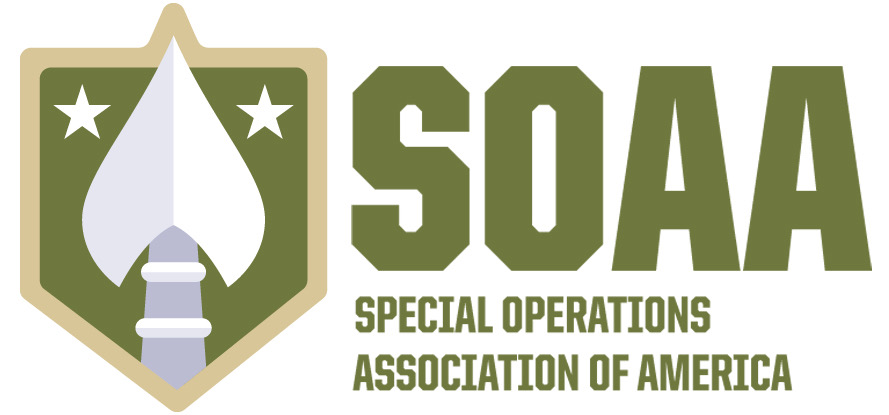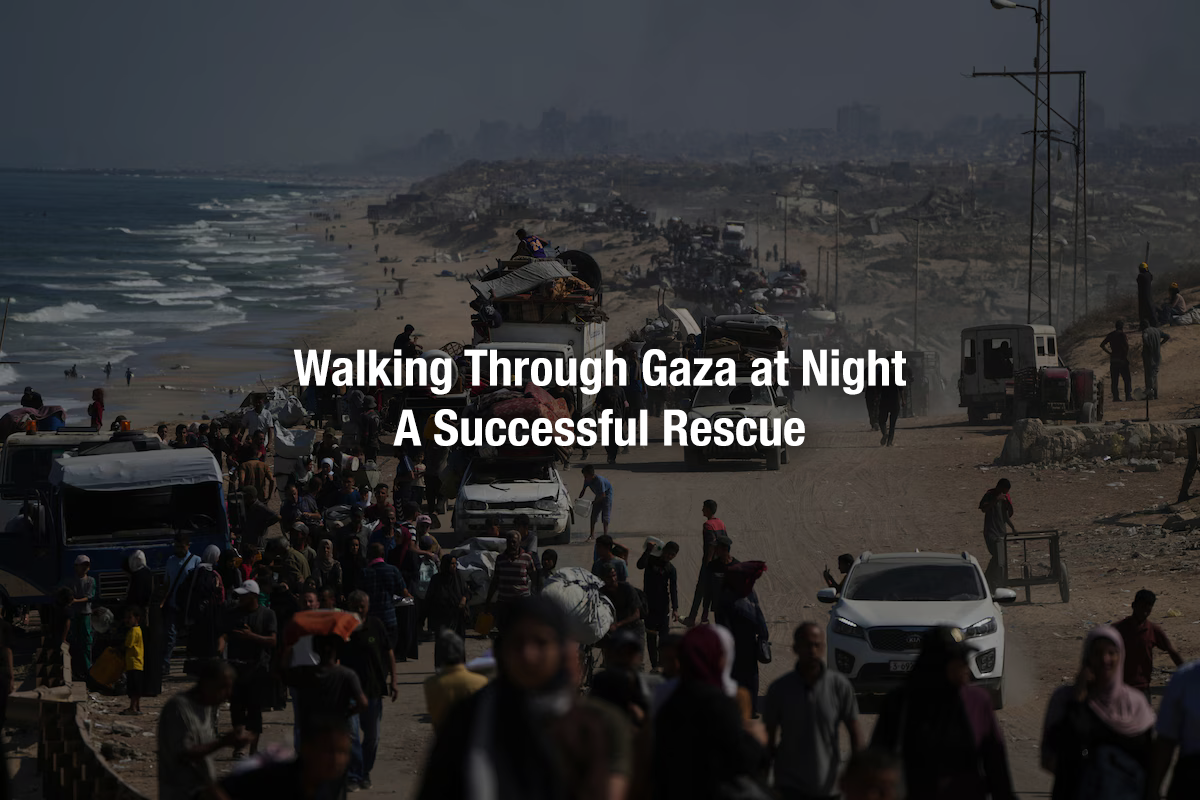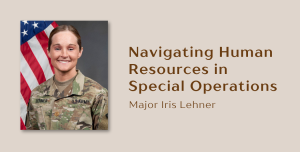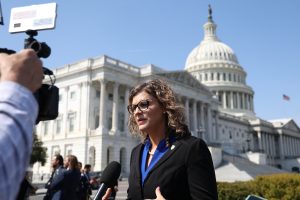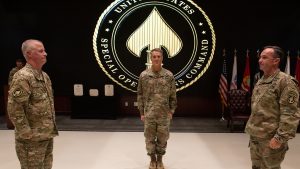On September 5, 2025, a message cut across time zones and continents. It reached us at the Special Operations Association of America (SOAA), the national voice for the special operations community. SOAA exists to advance the interests of America by bringing firsthand experience from the United States’ most distinguished warfighters into policy, equipping politicians and decision-makers with the ground truth, and, when necessary, mobilizing our unique capabilities to respond to crises both at home and abroad.
That evening, Sean Vandiver, president of the Afghan Evacuation Coalition, who had worked with veteran networks since Kabul’s collapse received a brief but urgent note: a U.S. Navy corpsman, a hospital corpsman assigned to the 5th Marines, had a family trapped in Gaza. His mother, siblings, nieces, and nephews were encircled by bombardment and unable to leave.
For two years the family had heard the same message from the embassy in neighboring Jordan: if she arrived legally, her visa would be processed. It was a promise that didn’t address reality. A legal pathway existed in theory, but no help existed to bring her across the border. The corpsman was serving his country while his mother was stranded in one of the world’s most volatile war zones.
Alex, a SOAA board member was notified of the request and acted without hesitation. He’d seen this pattern before. In Afghanistan, he and his partners had established transportation routes and safe houses when official structures disintegrated. They had repeated that work in Ukraine, often coordinating remotely, guiding civilians across cities under bombardment with nothing but live location data and commercial technology. Nearly a thousand people had been moved through those efforts. Gaza, while unique in geography and politics, carried the same operational logic. “Of course we’ll help,” he said.
As an Army Psychological Operations veteran, Alex is uniquely qualified, experienced and connected to conduct such an operation. With access to the vast SOAA network of former special operators of varies types, Alex began coordinating assets.
The first move was to secure legitimacy. “This really required government approval,” he emphasized. “You can’t freelance. That’s how you get people killed.” He reached out to Morgan Ortagus, a Navy reservist and former State Department spokesperson, who immediately pushed the U.S. embassy in Jerusalem. Within hours, the Deputy Chief of Mission was looped in. In Amman, the Chargé d’Affaires, effectively the acting ambassador, was brought into the conversation. Israel was contacted through the Coordinator of Government Activities in the Territories, the office responsible for such approvals. Jordan’s Ministry of Foreign Affairs deliberated, requesting supporting documents, and ultimately agreed to admit her for processing. Israel confirmed she had no derogatory information and would be cleared to depart.
The triad aligned: Israel would allow exit, Jordan would allow entry, and the U.S. embassy in Amman would process her visa. With the interlocking chain of approvals across three governments, legitimacy was intact.
Yet the approvals did not solve the operational problem: she still had to move across Gaza. She was in Gaza City, pressed against the coast in the north. The exit was the Kerem Shalom gate, tucked into the far southeastern corner of the strip. The physical distance was manageable, but the movement itself was dangerous and complex. There were more than twenty miles of bombed-out roads, collapsed buildings, and hundreds of thousands of displaced civilians between her and her freedom. Israel briefly offered to add her to a convoy, but the slow nature of bureaucracy killed the window of opportunity: by the time the paperwork moved, the convoy had departed without her.
That left one option: walk.
On the night of September 15, she began moving. It was dark, many roads were jammed, and entire neighborhoods were in ruins. She shared her live location on Google Maps into a group chat with her son, her daughter-in-law, and Alex. From thousands of miles away, they began to walk her turn by turn. “For the last few hours of the evening, in the middle of the night, in the dark, she shared her location with us,” Alex recalled. “We literally walked her through Gaza, avoiding bad areas, until she reached the link-up location.”
While the phones displayed her position, they couldn’t clear a path. Gaza’s streets were choked with rubble and debris, and civilians were fleeing in every direction. Since entire blocks had collapsed, some navigable landmarks had been erased entirely by airstrikes. She moved in darkness with only her children beside her, while from thousands of miles away, Alex directed her forward, reacting in real time to contingencies. Time was of the essence. The Israelis had given her a four hour window.
Somehow, she made it.
At the gate, Israeli officials processed her departure. The U.S. embassy took custody and moved her across Israel. At the Allenby Bridge, she crossed into Jordan. A relative was waiting in Amman to receive her and house her during visa processing.
For her son, still serving with the Marines, the relief was immediate and profound. The burden of wondering each night whether his mother had survived another day in Gaza was lifted.
Behind the scenes, the operation was sustained by a disciplined network. In the Signal chat were names rarely seen in public: a former U.S. ambassador to Israel, a former Deputy Assistant Secretary of Defense for Special Operations, veteran consultants, and local partners within SOAA who provided the ground truth. Her successful exfil was achieved by a coalition of the willing, bound by discipline, legality, and the ethos of never leaving people behind.
Alex credits those unseen allies. “There are good people everywhere,” he said. “When war breaks out, you see the worst of humanity, but also the best. We’ve been able to find the best.”
Several lessons endure. Legitimacy is non-negotiable. Every move was coordinated with governments; that discipline prevented escalation and ensured safety. Technology has transformed humanitarian operations. Even a decade ago, remotely guiding a family out of Gaza would have been inconceivable. Today, with live mapping, encrypted group chats, and satellite imagery, it is possible. And networks matter. Veterans, diplomats, and allies can act where bureaucracies lag, but only if they remain disciplined, transparent, and rooted in law.
With our latest successful evacuation, we at the Special Operations Association of America have once again demonstrated that we are a disciplined network of veterans, diplomats, and allies capable of moving swiftly, lawfully and with purpose. Washington Post just reported about this evacuation as well, you can read their article here.
Cover photo: Displaced Palestinians flee Gaza City in mid-September. (Abdel Kareem Hana/AP)
